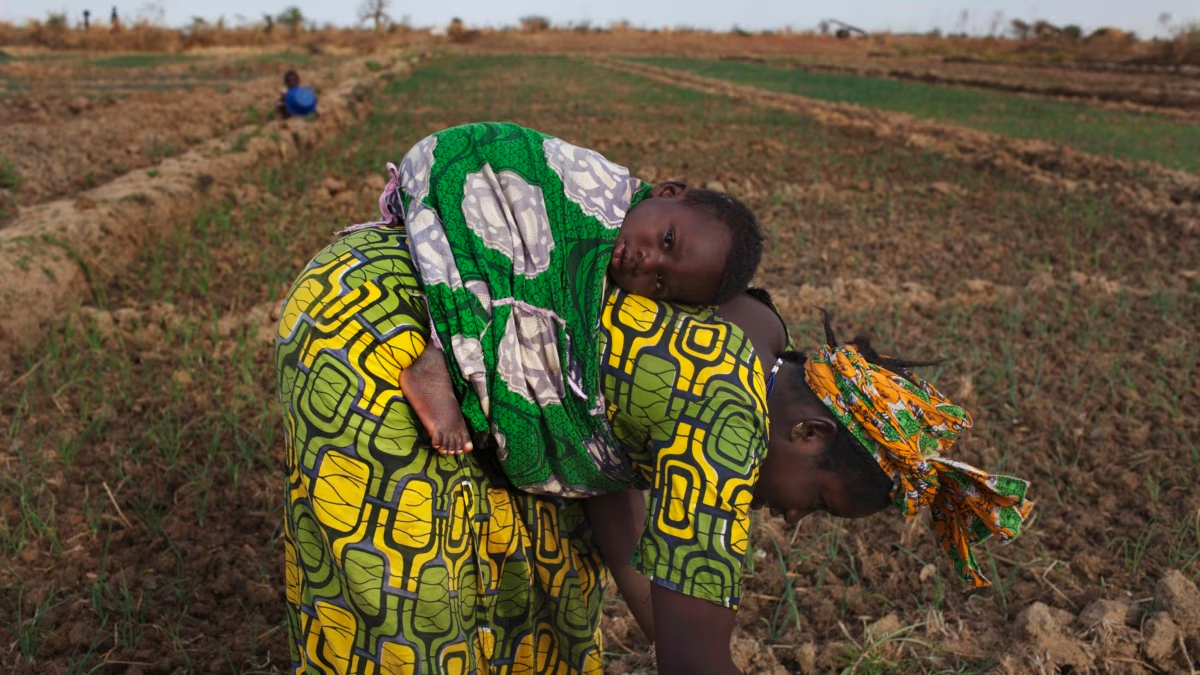WHY Kuria farmers are shifting towards Cabbages, capsicum and tomatoes from tobacco farming
Sometime last year, farmers in Kuria, Migori County, were crestfallen after the tobacco company that was buying their produce withdrew from the region.
Alliance One Limited pulled out of the pact it had with farmers to buy their produce citing high cost of the tobacco harvest and moved to Uganda.
Many farmers harvested losses as they remained with a crop that they could not sale.
However, things are starting to warm up for some farmers as they pick up the pieces and move to other crops.
Ditched tobacco farming
Two friends, a pastor and a teacher, in Nyametaburo in Kuria East sub-county are among farmers who have moved to horticulture, growing capsicum, tomatoes and cabbages on the land where tobacco once flourished.
The two began the agribusiness last year after the tobacco company started experiencing challenges.
“When the problem started, agricultural officers encouraged us to grow horticultural crops like cabbages because they also do well here,” said Chacha Mwita, a pastor at PEFA Church in Kegoncha.Mwita and his business partner Peter Chacha, a history and Kiswahili teacher at Kugitimu Secondary School, hired five acres at Sh5,000.
“We raised Sh100,000 to start the venture, with each one of us bringing in Sh50,000. The money went to hiring and preparing the land, buying certified seeds for the crops and fertiliser among other initial costs.”Of the three crops, capsicum stands out. The crop sits on two acres.
“We grow the Pepper California Wonder variety which takes 70-80 days to mature. This variety produces fruits that are thick-walled, uniform and blocky with attractive good pepper taste,” said Mwita, noting they have over 80,000 plants from which they get up to 600 fruits per harvest after every 20 days.
How to raise capsicum
To plant capsicum, they buy seeds and plant them in a nursery for about month before transplanting to the farm. A sack of capsicum currently goes at Sh2,700 in Migori, Isebania and Kehancha markets.The duo makes an average profit of Sh18,000 per harvest after selling their produce per kilo and deducting transport and labour costs as they employ four workers.
The construction of Migori-Kehancha Road has come as a blessing to the two farmers. Nairobi–bound buses have started plying the route enabling them to transport their produce to Nairobi hassle-free.
“These days we don’t need to travel to Isebania and Migori with our produce. We take it to Kehancha and sell to traders.”According to Chacha, capsicum’s resistance to pests and diseases makes it a low-cost crop.
“But this does not mean the crop is not attacked by diseases, bacterial wilt of one of its top enemies. We maintain a high soil hygiene through weeding to keep off the diseases besides drenching transplants with fungicides to keep the deadly Sclerotium disease at bay.”The duo further grow on about two acres the Cal J tomato variety, which does well in warm climate and has a shelf-life of up to 21 days.
Netting cash from tommatoe farming
Just like capsicum, they grow their tomato in the open field and get 100kg per harvest, earning them about Sh3,000 per after selling to traders in Kehancha and Kegonga market.
Their one acre cabbage farm brings the farmers good returns as they sell each of the vegetable for at least Sh20.
“Traders come to the farm to buy the cabbages making us save on transport costs. We have now started growing butternuts and watermelons, which have the potential to do well here,” said Mwita, noting they take turns to oversee their farm, which earned them Sh170,000 half of last year, during weekdays and weekends.
Chacha and Mwita’s farm has become a centre of attraction in the larger Migori County as, according to agricultural officers, it is the only one that hosts capsicum.
The farm has attracted the eye of the county government, which is using the duo to market other horticultural produce from farmers and encourage the youth to venture into agriculture.
One of their biggest challenges is water, which they have to hire a machine to pump from River Migori, and do the irrigation manually.
Iscah Oluoch-Owino, Migori County Executive in-charge of Agriculture, says the county buys most of its vegetables from Tanzania, Nakuru and Narok yet farmers can grow the crops due to a favourable climate.
“But I am happy this is changing as people embrace horticulture following the collapse of the tobacco market.”
















Leave a Reply